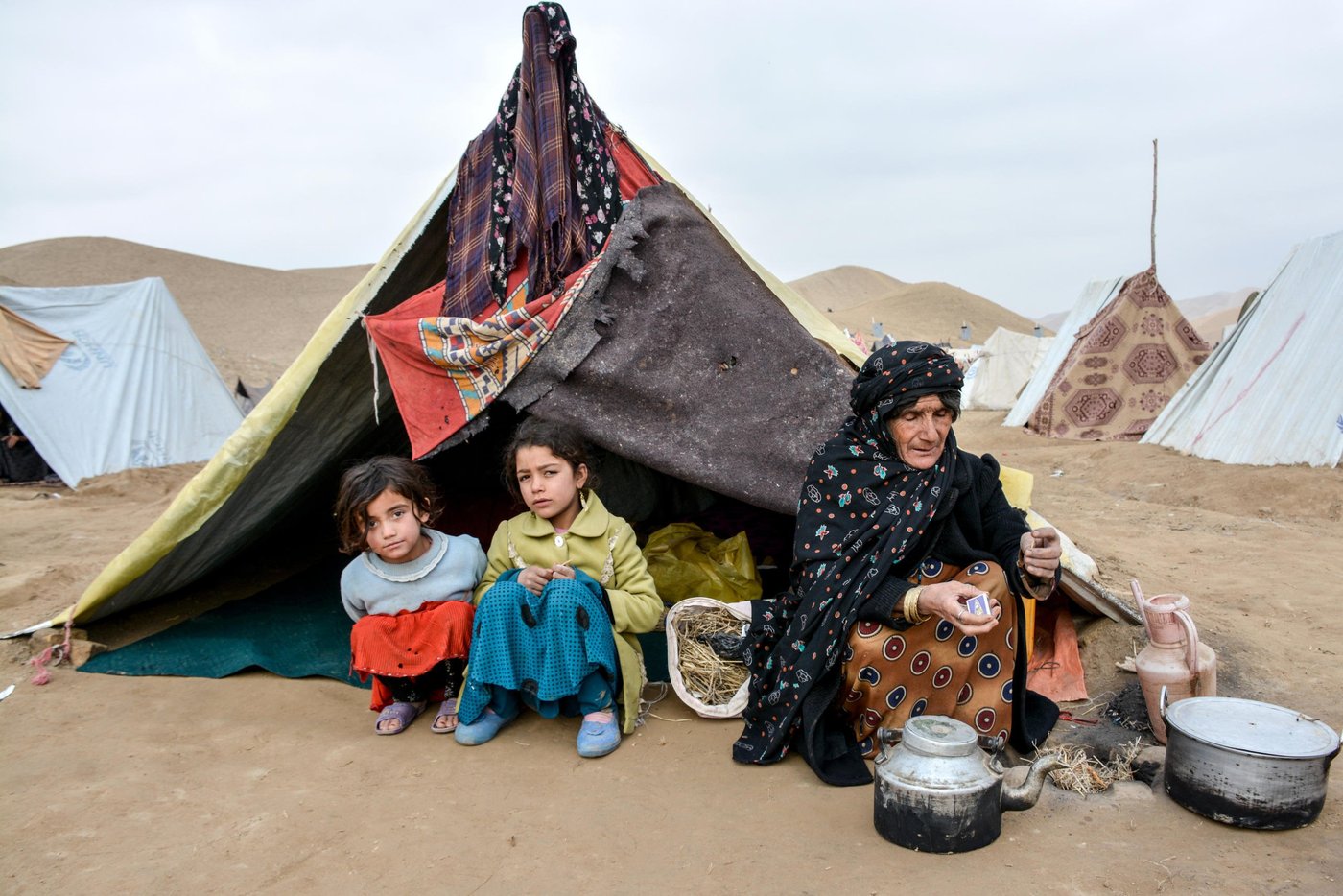Ute på et goldt jorde har et tusentalls familier slått seg ned i en teltklynge. Teltleiren har fått navnet Feristan og ligger nær Qala-e-naw som er hovedstaden i Badghisprovinsen i Afghanistan.
– Før tørken drev oss på flukt klarte vi oss bra. Vi hadde et trygt og godt hjem. Vi hadde nok mat, og vi klarte å holde varmen gjennom vinteren. Livet på flukt er beinhardt og vi lider, sier Gul Ghotay, og drar det grønne teppet tettere rundt seg. Familien har klart seg gjennom nok en bitende kald natt. Gradestokken er krøpet ned mot null grader i løpet av natten.
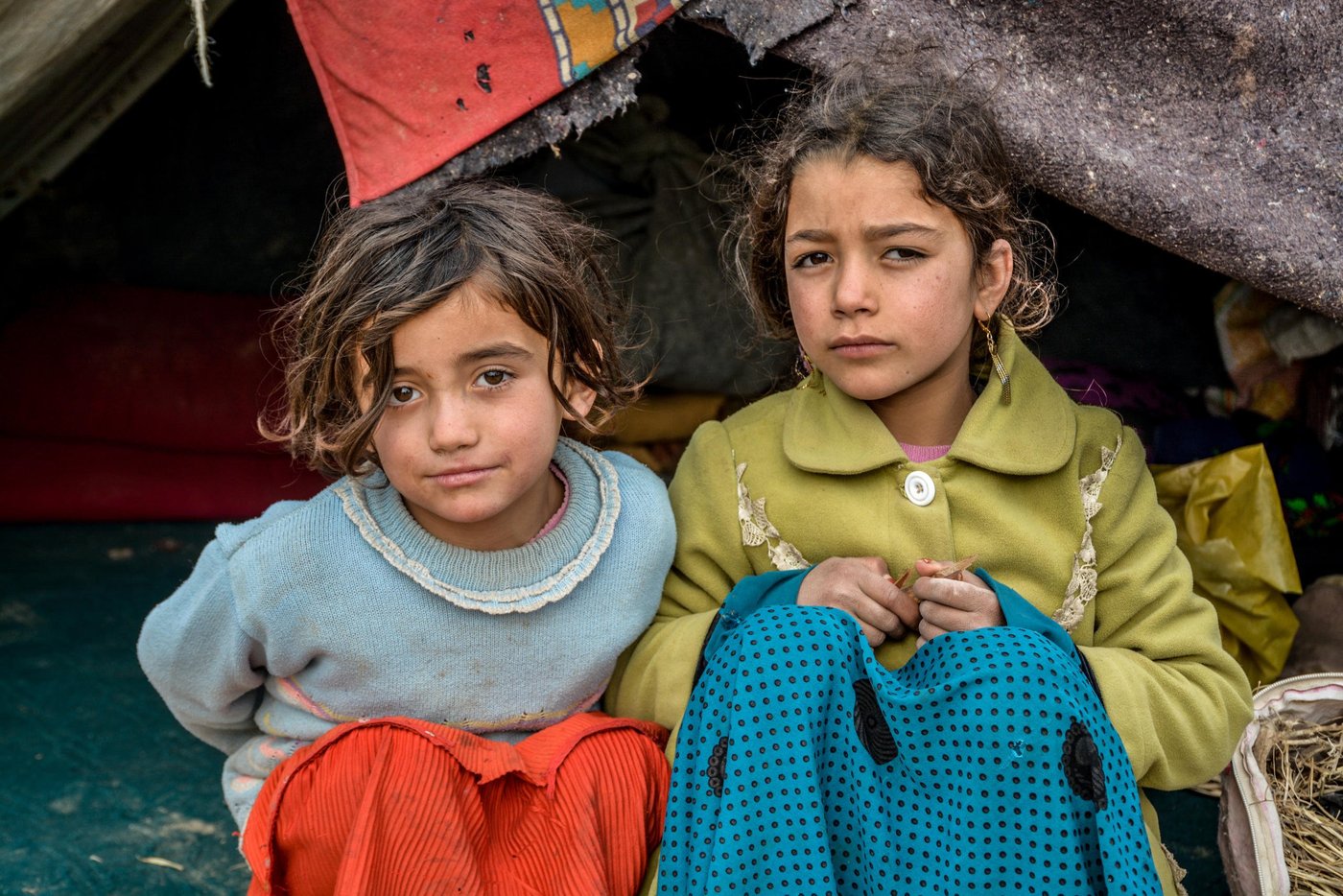
Drepende kulde venter
Familien Ghotay er en av de mange tusen familiene som har forlatt sine hjem nord og vest i Afghanistan på grunn av tørke. Langvarig tørke har ført til dårlige og feilslåtte avlinger og husdyrene har sultet i hjel eller er blitt solgt. Dette har ødelagt livsgrunnlaget til bøndene og redusert inntektene dramatisk. Nå trekker de inn til de større byene for å få hjelp til å overleve.
Mange har kun klart å få med seg det aller nødvendigste, andre står helt på bar bakke. Kamphandlinger og den vanskelige sikkerhetssituasjonen har også bidratt til at mange drives på flukt. Nå står vinteren for tur, og kulde og sykdommer har allerede begynt å kreve sine første ofre.
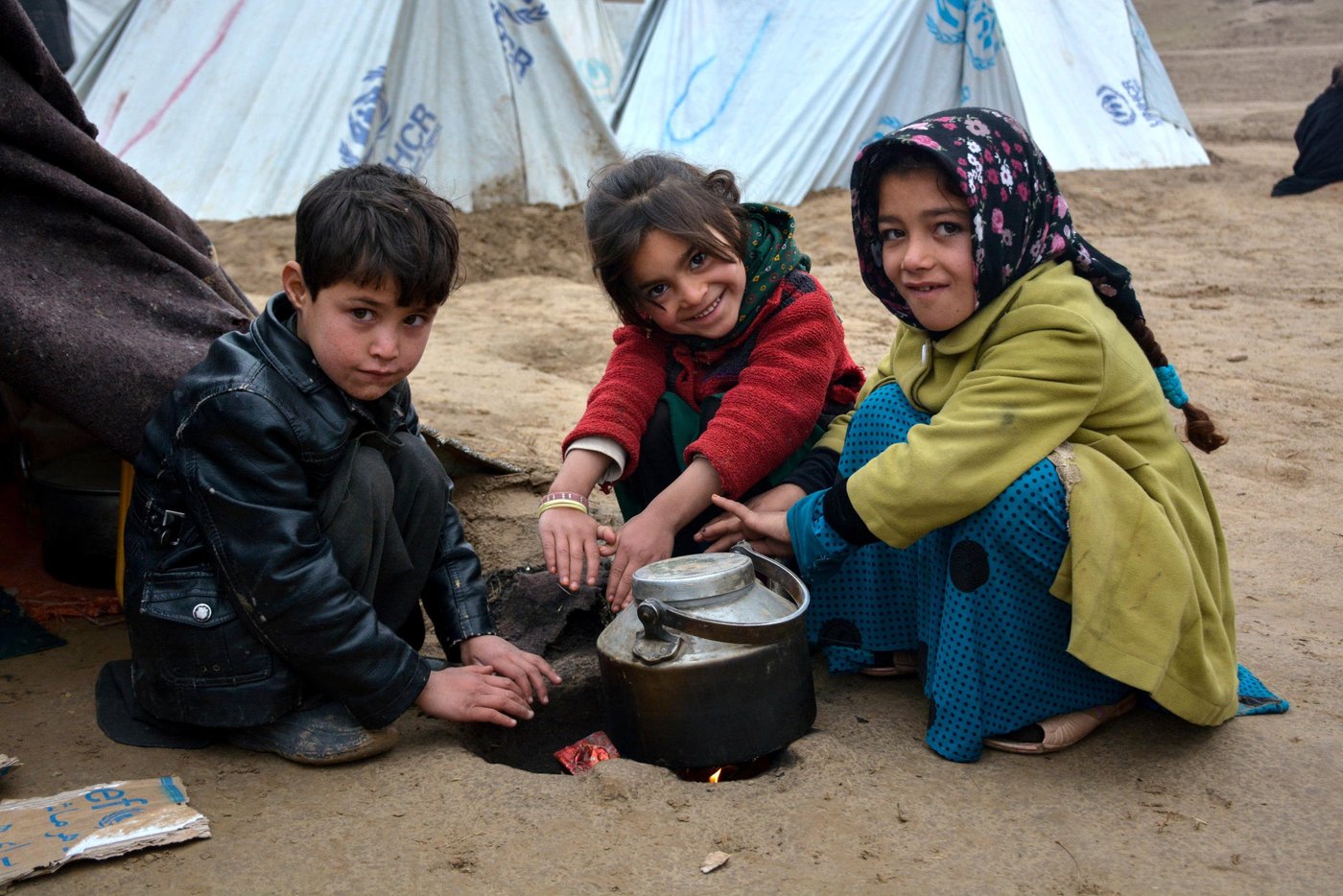
– Jeg har bodd her i fem måneder sammen med mine to døtre og én sønn. Mannen min døde for fem år siden. Den eldste sønnen min er voksen og bor med familie sin i Herat. Den nest eldste sønnen min er narkoman og opiumbruker, og det er flere år siden jeg hadde kontakt med han, forteller hun.
Yngstesønnen Zalmay (17) er nå hennes siste håp. Men på grunn av de helsefarlige forholdene i leiren har han utviklet tuberkulose.
Selv om Zalmay er alvorlig syk, er det han som forsørger familien på fire. Den siste tiden har han sørget for inntekter ved å selge smørbrød på markedet.
Kjøp gaver med mening
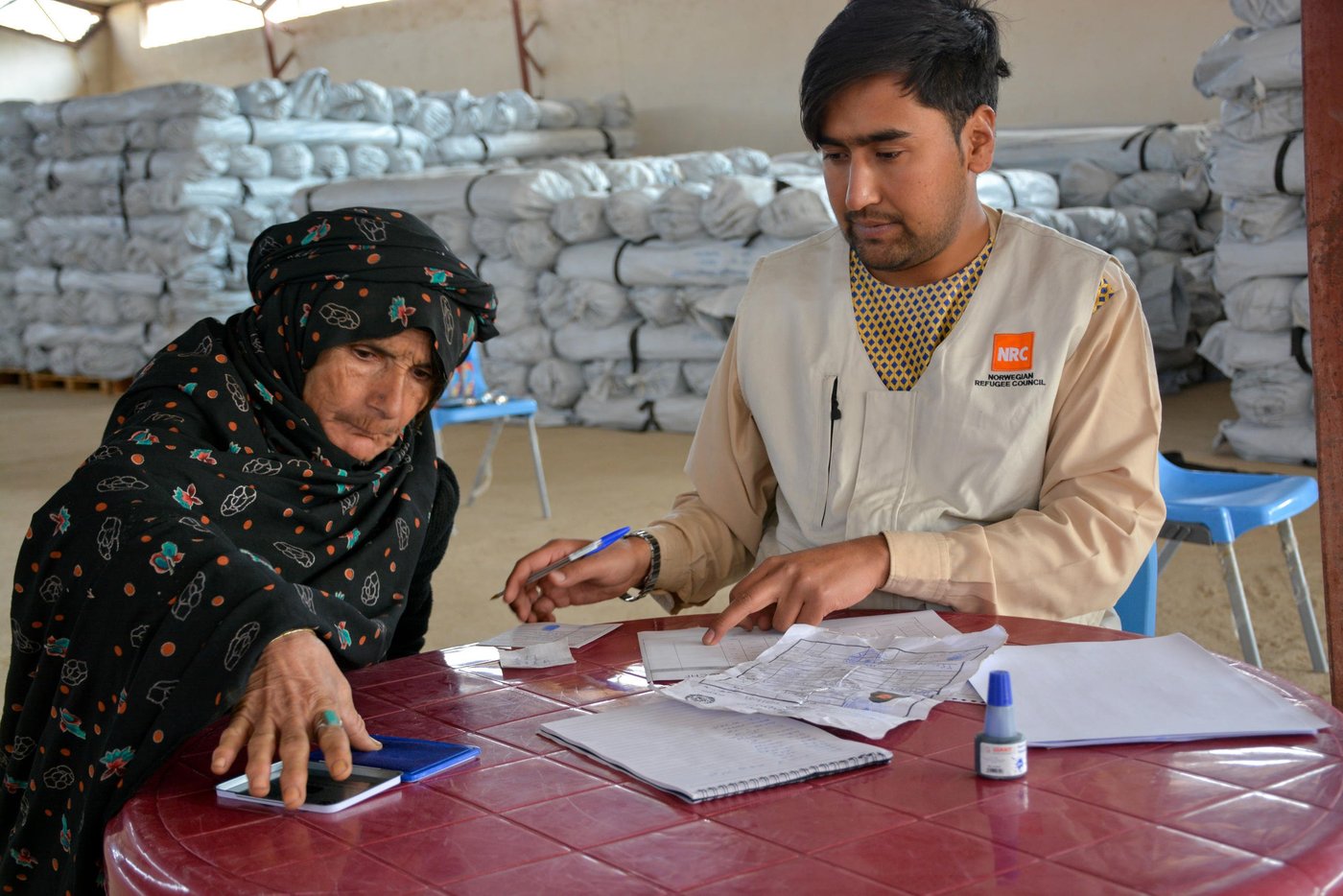
Analfabet
Gul har allerede vært på Flyktninghjelpens kontor og lager nær leiren.
– Jeg signerte med et fingerstempel ettersom jeg aldri har lært å lese og skrive, forklarer Gul.
Tidligere lå teltleiren et stykke ned i dalen ved et uttørket elveleie, men sammen med lokale myndigheter har Flyktninghjelpen flyttet alle familiene litt lenger opp i dalen, slik at de ikke risikerer å bli tatt av flom eller jordras når vannstanden øker i løpet av høsten og vinteren.
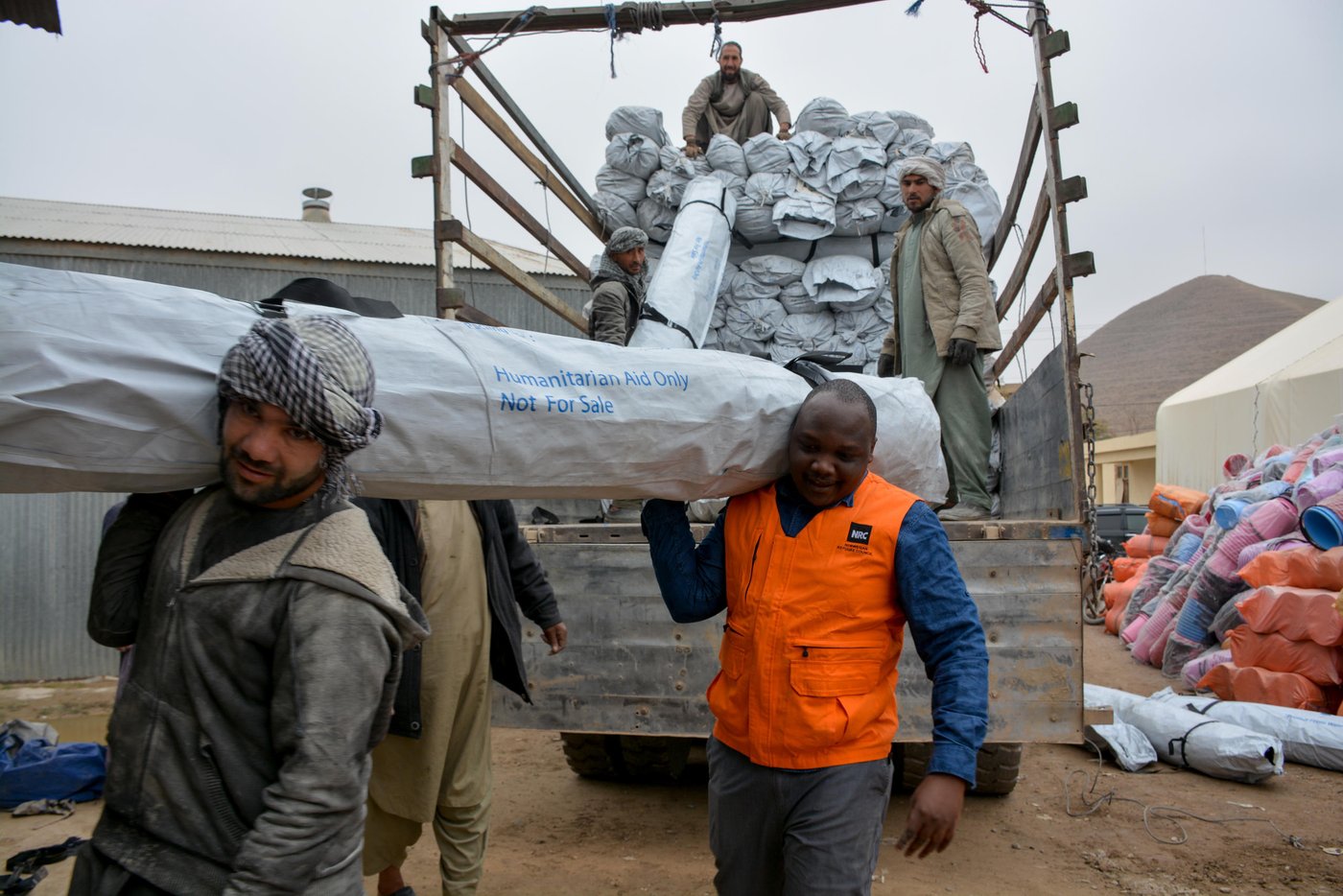
Logistikk og organisering
Lastebilen med telt har ankommet leiren og Flyktninghjelpens medarbeidere er begynt å lesse av teltene.
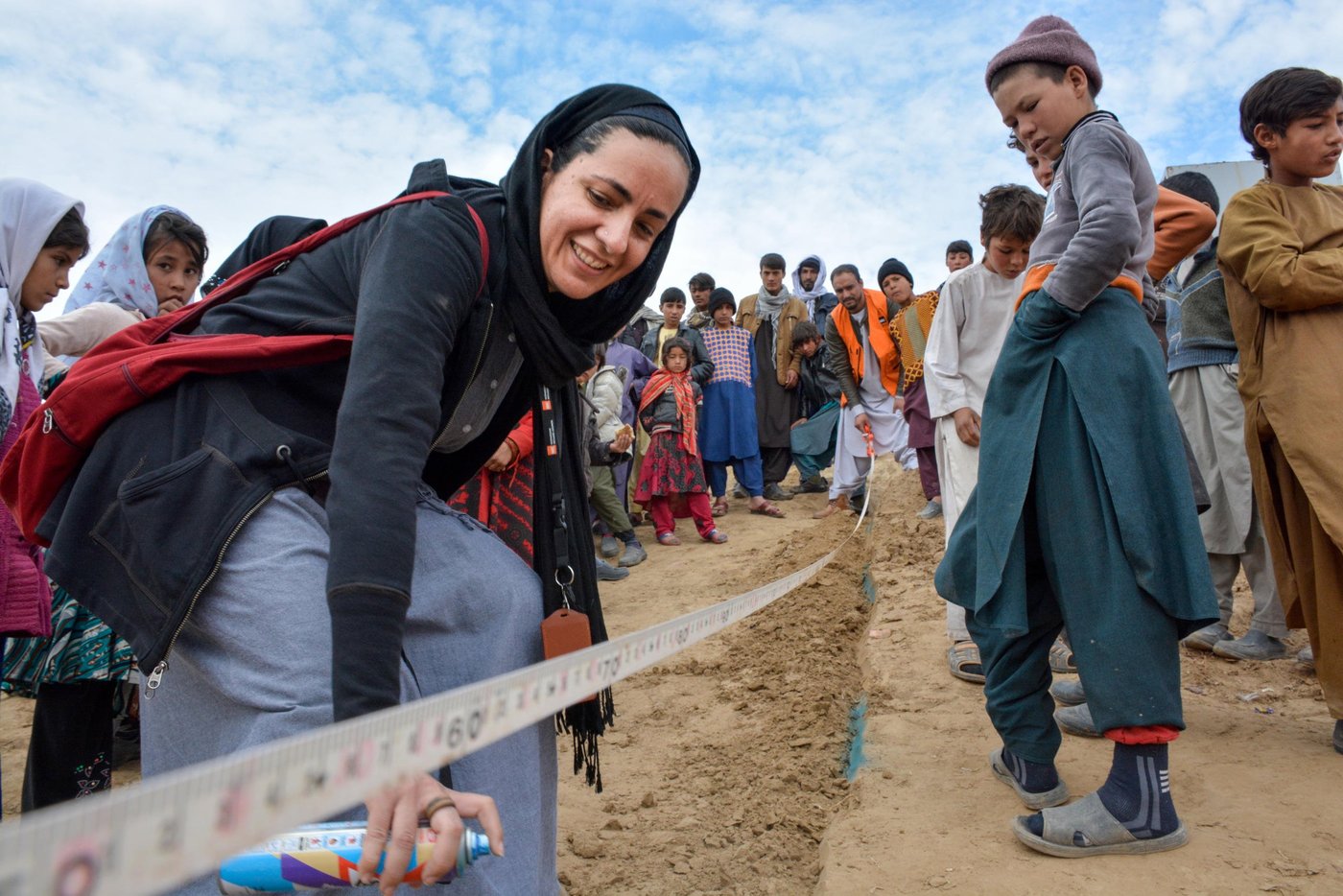
Miriam Lopez, som leder Flyktninghjelpens arbeid med å sette opp telt i leiren, og hennes team har allerede merket av hvor det nye teltet til familien Ghotay skal stå.
– Teamet har sjekket grunnen og sørget for at det er nok plass mellom teltene, slik at vi minimerer brannfaren. Familiene bruker åpen ild til koking og oppvarming, forklarer Lopez.
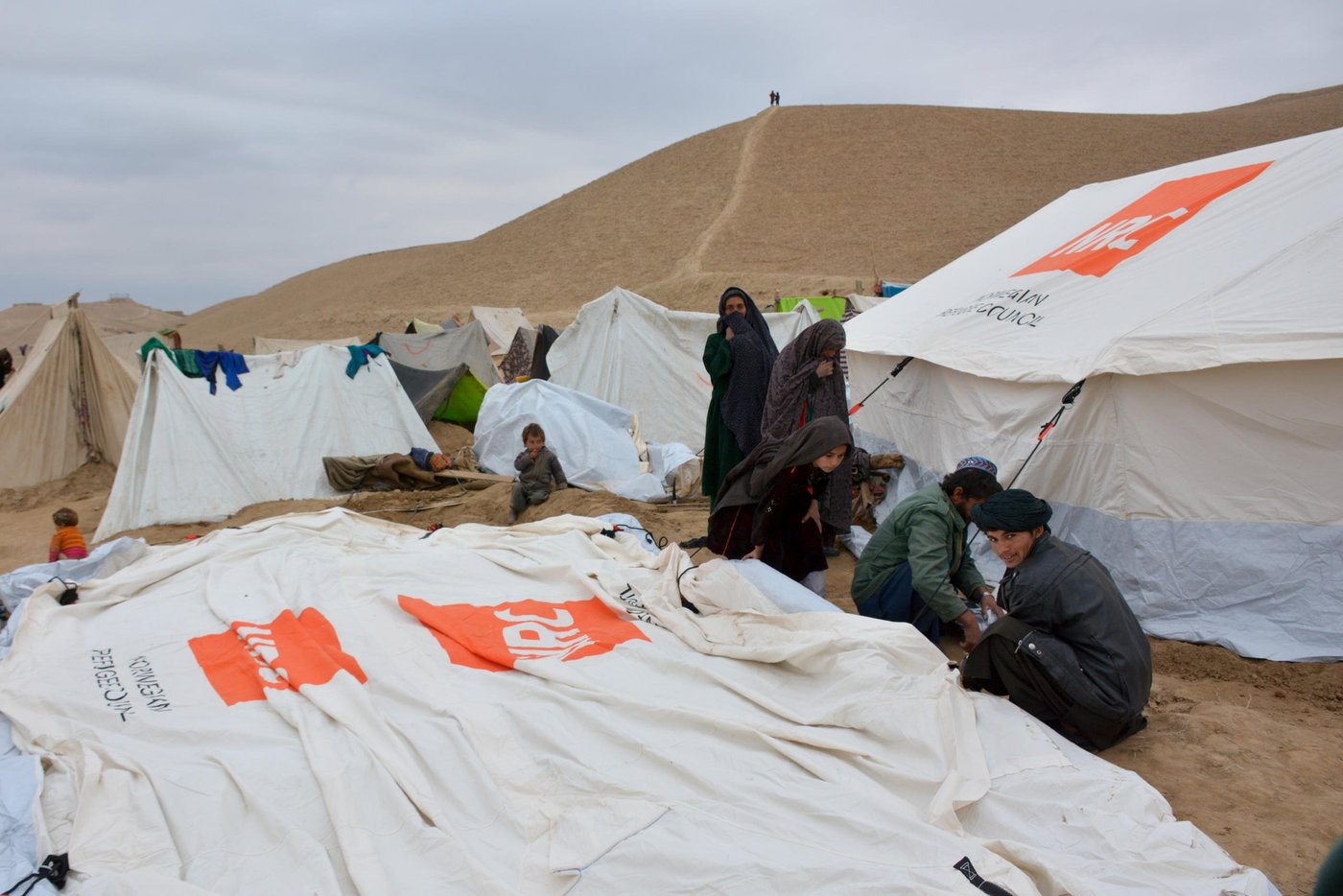
Flyktninghjelpen en sentral aktør
Gul får anvist plassen hvor det nye teltet skal settes opp. Naboene hjelper til, og snart reiser det nye hvite teltet seg, og føyer seg inn i rekkene av nye telt.
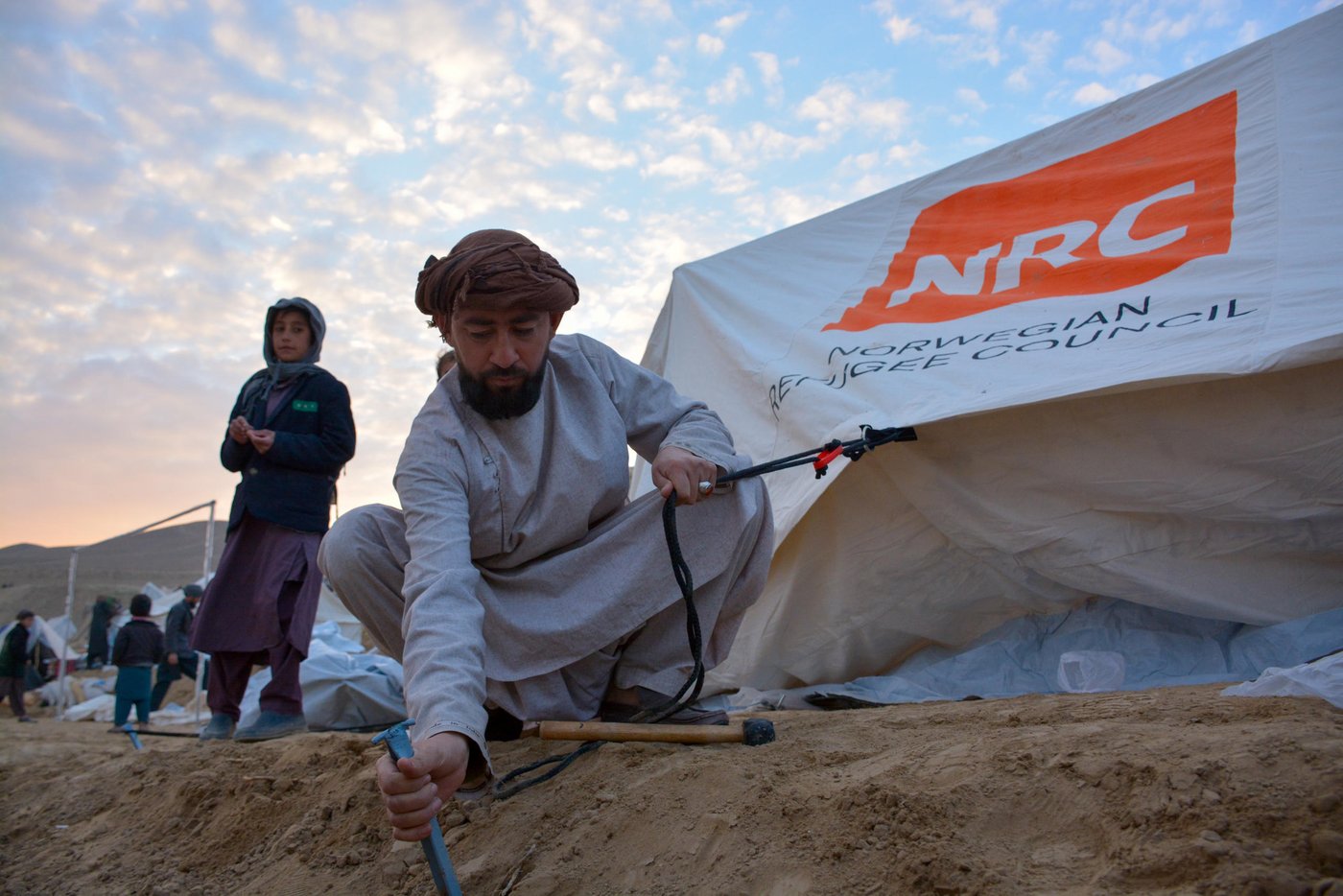
Den lett gjenkjennelige oransje logoen til Flyktninghjelpen er plassert godt synlig på telttakene.
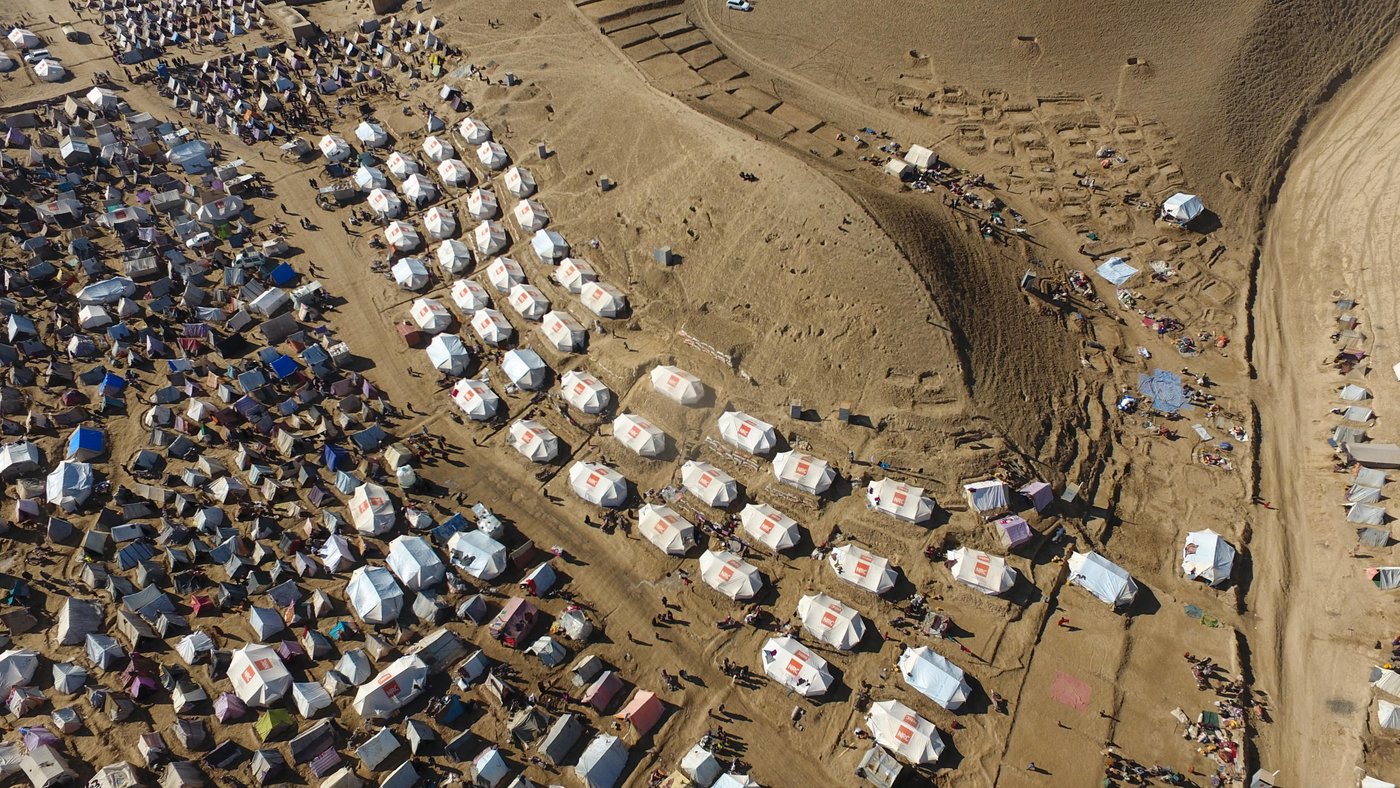
Fra luften danner teltene klare parallelle linjer og vitner om at her finnes det en plan som skal redusere faren for brann og oversvømmelse. I ytterkanten av leiren er det satt opp en rekke latriner bygget i aluminium.
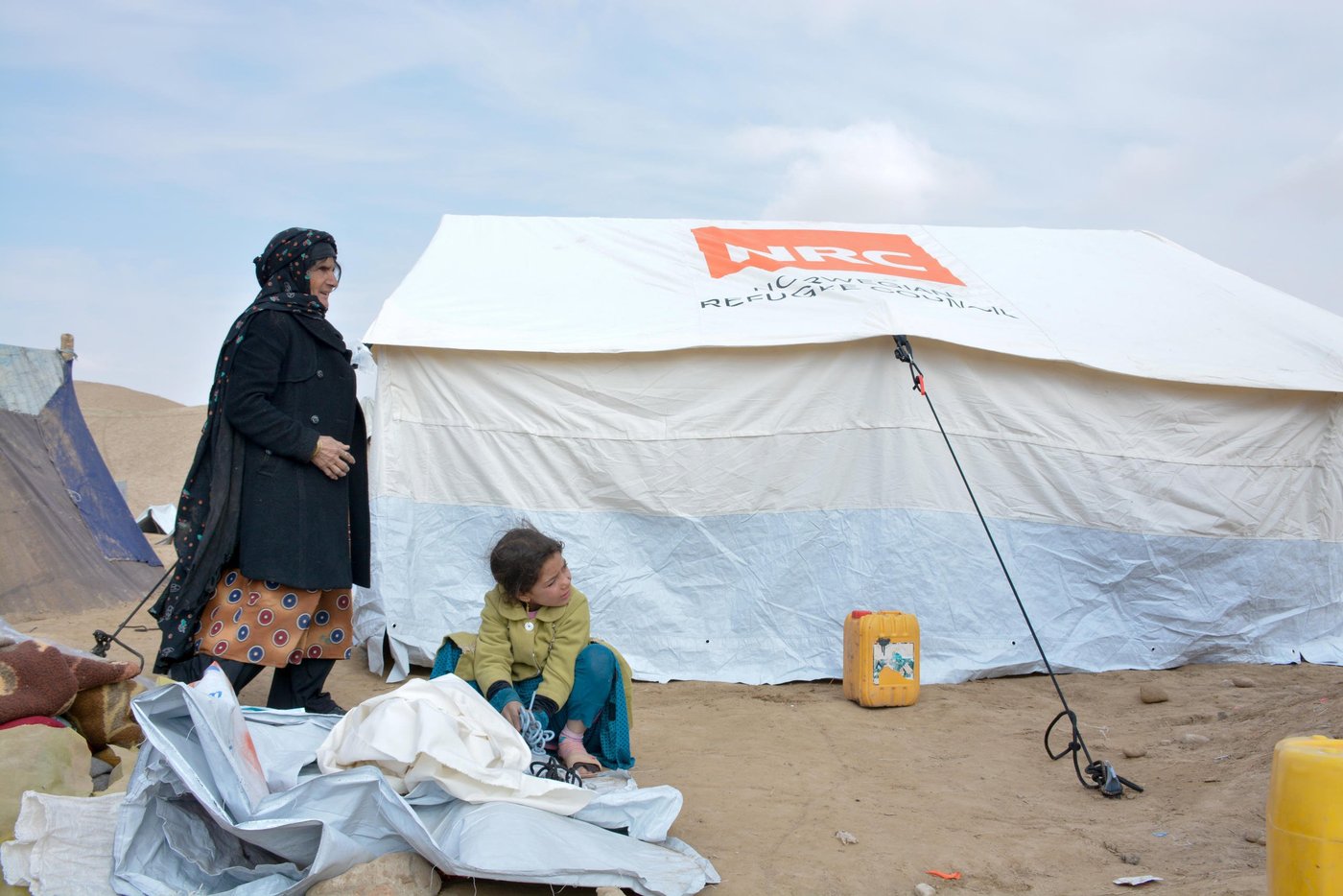
Endelig innflytting
Etter fem måneder på flukt kan endelig familien Ghotay flytte inn i et skikkelig vinterisolert telt. Teltene er på 23 kvadratmeter og kan huse en familie på seks. De er vanntette og vinterisolerte med dobbel duk og kraftig bunn. Teltene har minimum levetid på ett år. I første omgang deler vi ut 2.500 telt.
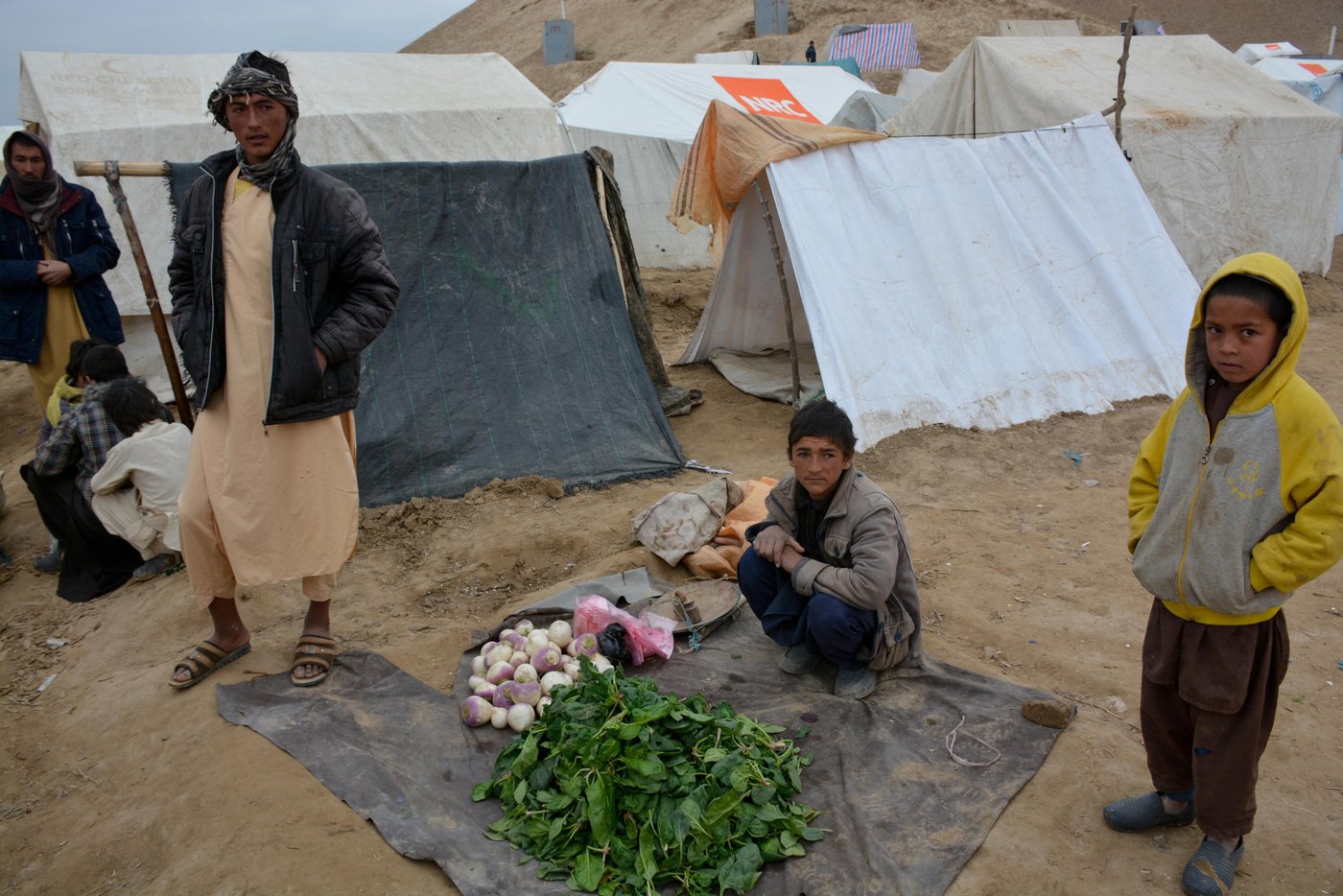
Ekstrem nød
I nærheten av det nye teltet har en gutt satt opp en enkel salgsbod der han tilbyr løk og andre grønnsaker. – Det er ikke så my annet jeg kan gjøre for å tjene til livets opphold her i leiren. Noen familier har fremdeles penger og kan kjøpe. Slik klarer jeg å skaffe litt penger og det jeg ikke selger tar jeg med hjem til teltet, slik at familien ikke sulter, forteller han.
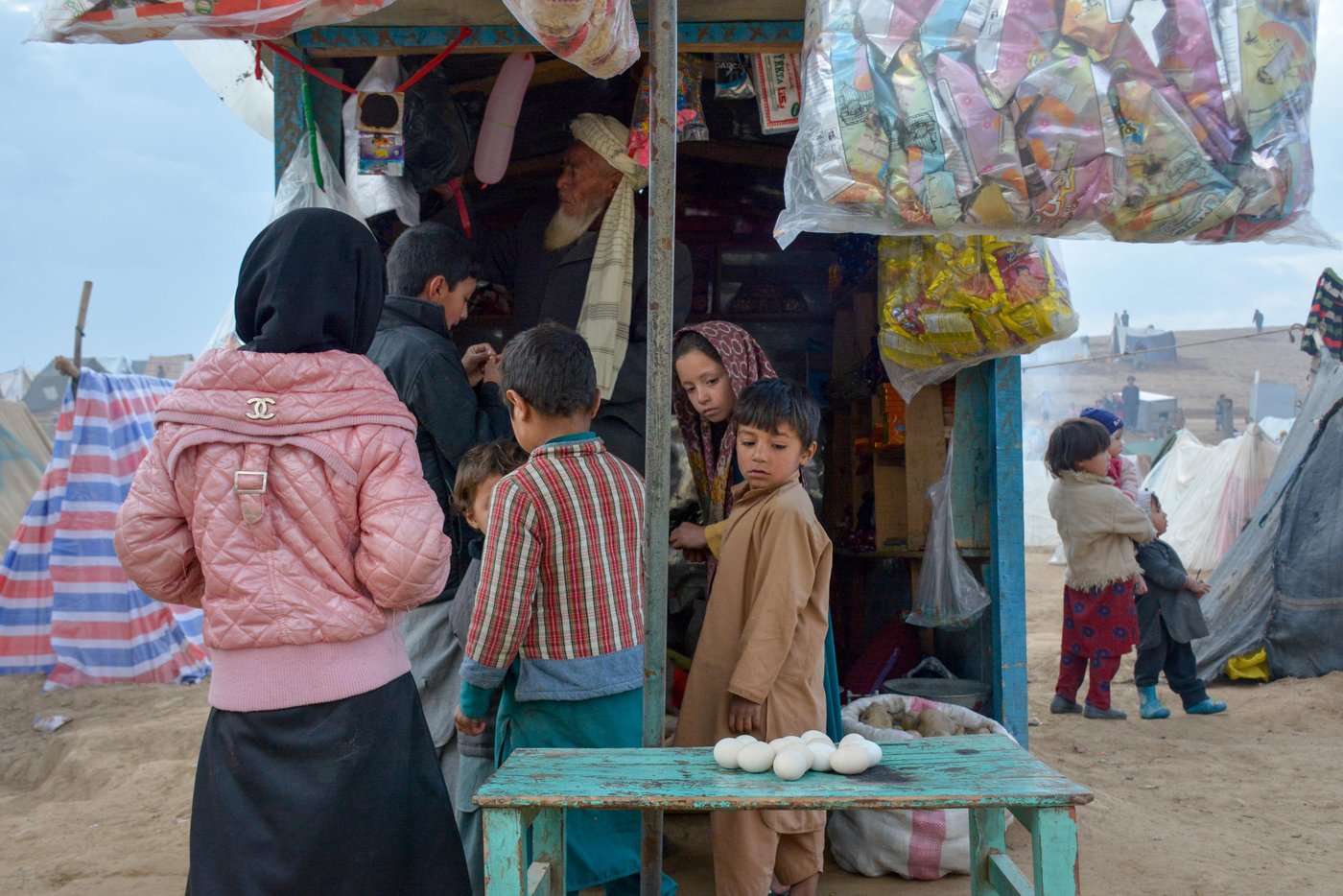
Noen barn har samlet seg rundt en salgsbod i leiren. En liten gutt sender et langt blikk etter noen egg som er bydd frem for salg. De færreste har penger til å kjøpe noe. Vareutvalget gjenspeiler dette. Kjøtt er luksus. De heldigste får to måltider om dagen. Vanligvis består det av kokt vann med sukker og brød.
Sola er i ferd med å gå ned. Barna leker med steiner og trepinner. Noen eldre menn har samlet seg i grupper og diskuterer høylytt. Kvinnene sitter inni eller utenfor teltene. De prater, tilbereder mat og sørger for ved til bålene.
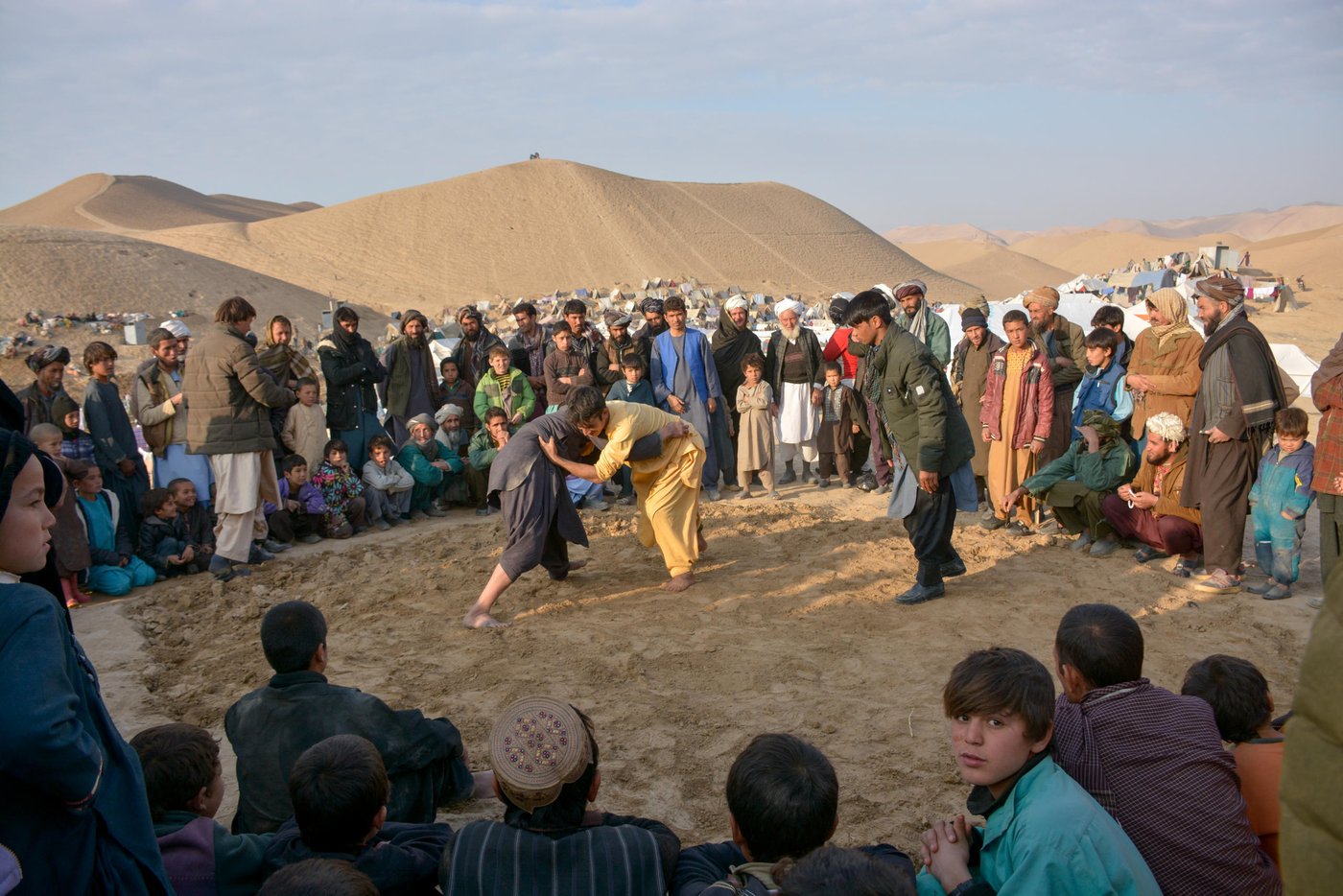
Forsøker å glemme problemene
En gruppe unge og eldre menn har samlet seg på et høydedrag over leiren. De danner en ring. Inne i ringen har to unge menn tatt brytetak på hverandre. Bryting er folkesport i Afghanistan og mennene har nok av fritid ettersom det er umulig å få tak i lønnet arbeid.
– De fleste av oss hadde mer enn nok å gjøre da vi dyrket jorda og barna gikk på skole. Her finnes det hverken arbeid eller skole. Det er langt inn til byen og vi er overlatt til oss selv. Derfor arrangerer vi brytekamper, for å få tiden til å gå og glemme alle problemene for en stakket stund, sier en av deltakerne.


